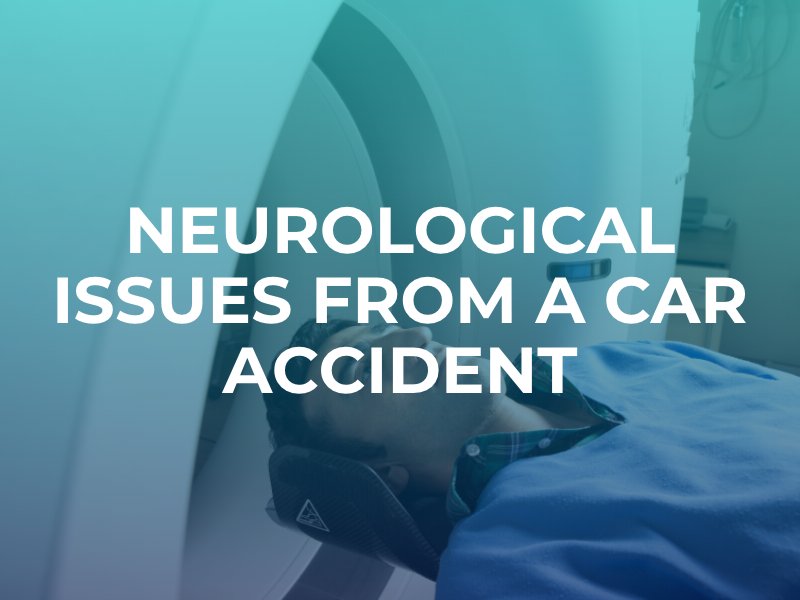Neurological Issues From a Car Accident
When most people think of car accident injuries, they probably think of broken bones, lacerations, concussions, and other traumatic injuries. However, there are also times when we can sustain neurological injuries due to a car accident as well. The types of nerve damage that can occur after a car accident range from minimal to serious and can cause damage to a person’s digital nerves, sensory nerves, and spinal nerves. Neurological injuries in a car accident can lead to permanent and disabling injuries for a car accident victim.

How do you know if you have neurological injuries after a car accident?
Neurological issues that result from a car accident may not be apparent immediately after a crash occurs. It is not uncommon for the signs and symptoms of car accident nerve damage to appear sometime after the crash happens. That is why it is important to seek medical attention immediately after a crash occurs and to continue any treatment plans recommended by a doctor.
In the aftermath of a crash, victims and their family members should be on the lookout for the following symptoms that could be signs of nerve damage:
- Limbs falling asleep when compressed
- Abnormal sensitivity and pain
- Tingling sensation in the extremities
- Difficulty speaking
- Loss of strength
- Muscle atrophy
- Lightheadedness or dizziness
- Problems holding or releasing urine and bowels
- Paralysis
Neuropathy, or nerve damage, is not uncommon after a car accident. These incidents can cause the nerves to be partially or completely compressed, crushed, stretched, or severed. There are various types of nerves that can be affected in a car accident, including the following:
- Autonomic nerves. These control our bodily systems.
- Motor nerves. These allow us power and movement.
- Sensory nerves. These control our sensation.
Common ways car accidents can cause nerve damage
Anytime someone is involved in a car accident, there is a chance they could sustain nerve damage. Some of the most common causes of nerve damage in a car accident include the following:
- Whiplash. The jerking of the head and neck back and forth in a car accident can lead to the nerves in these areas to be pinched or stretched.
- Blunt-force trauma. This can happen when any part of the body is slammed on a hard surface inside the vehicle. Nerves in the head, arms, and legs are particularly vulnerable to injury due to blunt-force trauma.
- Lacerations or punctures. When the skin is penetrated in a car accident, this can affect the nerves underneath.
How can these injuries be treated?
Only a trained physician can diagnose nerve damage after a crash occurs. They will work to determine what type of nerve damage you have sustained and advise you as to what the best type of treatment is for your situation. There are various options for the treatment of nerve damage in the aftermath of a car accident. This can include:
- Surgery
- Physical therapy
- Medication
It is important to understand that the best time to seek treatment for car accident nerve damage is right after an accident occurs. We also want to note that treatment for car accident nerve damage could take time. This is important because insurance carriers may push for you to accept a quick settlement after the incident, but this may not take into account the total amount of medical care you may need to make a complete recovery from the nerve damage. You should speak to a qualified and experienced Atlanta car accident attorney who can properly advise you about your case.